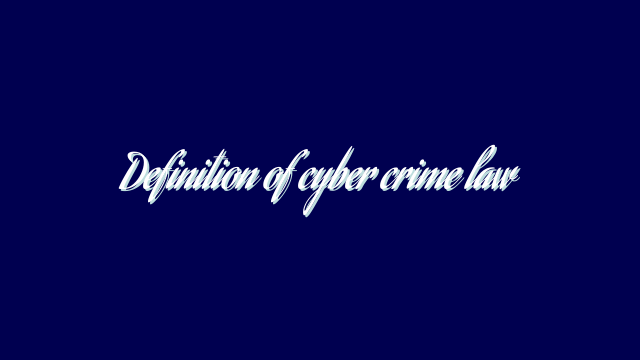
What is Cybercrimes ?
The Federal government, as well as many individual states, have recently enacted laws that generally prohibits:
(1) the intentional and unauthorized access, or the causing of access, to a computer, to acquire, alter, damage, delete, or destroy property or otherwise use the service of a computer program;
(2) inserting, attaching, or knowingly creating the opportunity for an unknowing and unwanted insertion or attachment of a set of instructions or a computer program into a computer;
(3) intentionally accessing, or causing access, to a computer to devise or execute a scheme or artifice with intent to defraud or to obtain money, property, or a service by a false or fraudulent pretense, representation, or promise;
(4) utilizing a computer to commit any crime.
While each state may have its own specific laws, the states have usually based their laws upon traditional federal laws that enable the investigation and prosecution of common “electronic” crimes such as threats, 18 USC 844(e) and 18 USC 875; child pornography, 18 USC 2252; counterfeiting, 18 USC 470-514; and fraud, 18 USC 1341, 1343, and 1344. Specifically, The federal Computer Fraud and Abuse Act, 18 USC 1030, prohibits unauthorized use of computers to commit seven different crimes:
(1) espionage;
(2) accessing unauthorized information;
(3) accessing a nonpublic government computer;
(4) fraud by computer;
(5) damage to computer;
(6) trafficking in passwords;
(7) extortionate threats to damage a computer. 18 USC 1030(a)(l)-(7).
In addition to these commerce based laws, the federal government and a vast majority of the States have enacted laws that cover the use of the Internet to commit communication related offenses such as: obscenity, solicitation of minors and child pornography, sales of controlled substances, fraud, and other crimes.
